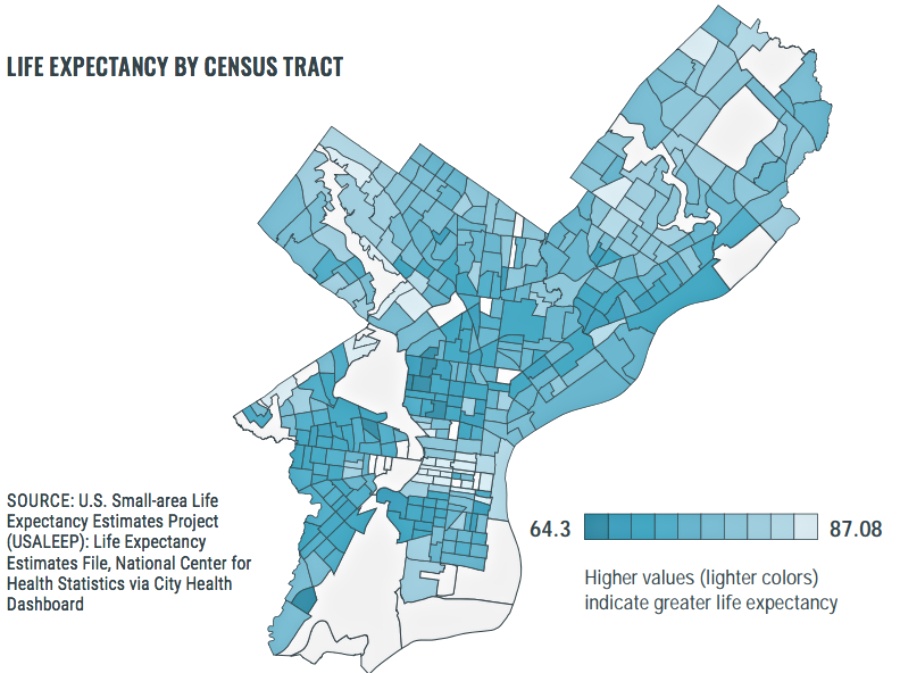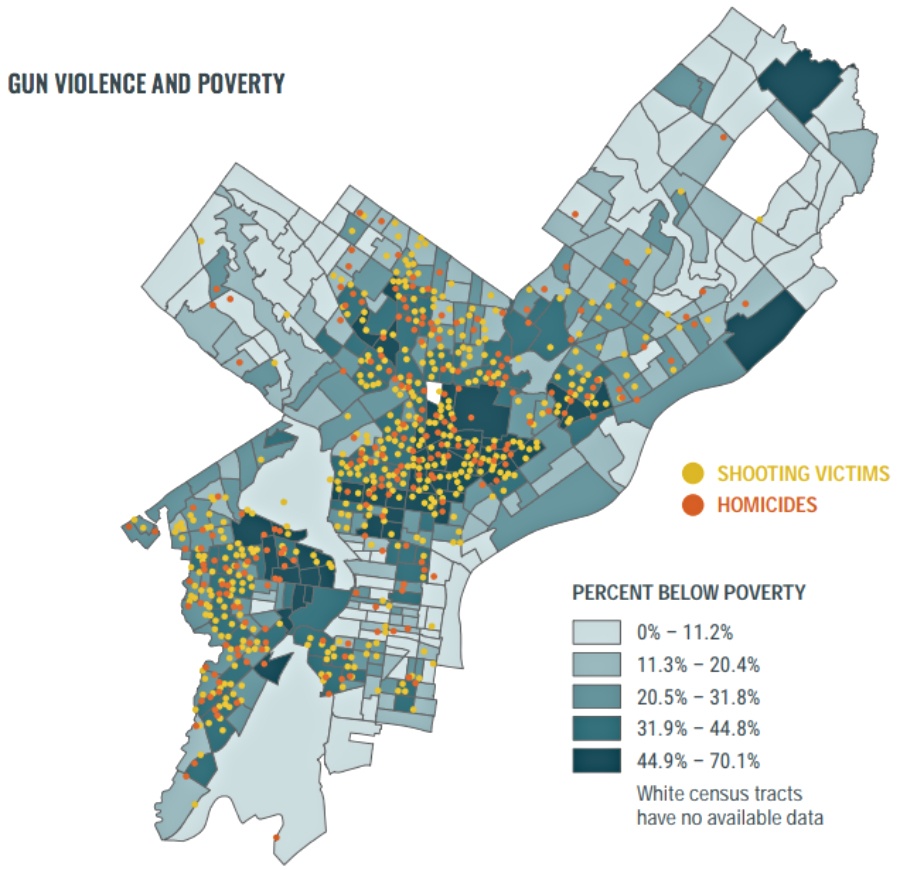The Opioid Epidemic Is Slashing Philly’s Overall Life Expectancy
Drug overdoses are now the third leading cause of death among Philadelphians, behind heart disease and cancer.

Charles Wollertz | iStock
Life expectancy in Philadelphia is on the decline — and officials say drug overdoses are a major driving factor.
The just-released Health of the City report found that drug overdose deaths among Philadelphia residents increased nearly four-fold in recent years, with those deaths making a resounding mark on the city’s overall life expectancy — specifically on the rate of premature deaths (those that occur before age 75).
Overall life expectancy has been on the decline since 2015, according to the report. But as of 2017, drug overdoses are the third leading cause of death in Philadelphia, behind heart disease and cancer.
The report by the Department of Public Health found that most drug overdose deaths in 2017 involved opioids, including both heroin and pharmaceutical opioids. The opioid overdose mortality rate reached a peak of 59 deaths per 100,000 residents that year — up from 40 deaths per 100,000 people in 2016, and 32 deaths per 100,000 residents in 2015. Overall, 1,041 Philadelphia residents died of drug overdoses in 2017. There were more than 8,000 emergency room visits for drug overdoses in 2017, according to the report.
Roughly one in three Philadelphians reported taking a prescription opioid in 2017 — with rates high across all demographics. But when it came to overall life expectancy, many disparities in health factors and outcomes persisted for racial and ethnic minorities, as well as for those experiencing poverty.
Life expectancy varied drastically by neighborhood, for example, and was lowest in communities with high rates of adverse behavioral and economic issues, including substance abuse, community violence and poverty.

Image via the Philadelphia Department of Public Health
Life expectancy similarly varied among race lines: Black men recorded the lowest life expectancy at 69 years, while life expectancy for black women was 78 years. Hispanic men and women experienced a life expectancy of 75 and 85 years respectively, while Asian men and women saw the highest life expectancy at 88 and 98 years. White men and women are at 74 and 80 years. The overall average life expectancy for a man in Philadelphia was 72 years, while the average life expectancy for a woman was 80 years. (All figures are rounded to the nearest whole number.)
Homicide was listed as the 10th leading cause of death among Philadelphians, with 322 deaths recorded in 2017. The homicide mortality rate was highest among non-Hispanic blacks (particularly non-Hispanic black men) — nearly 10 times higher than non-Hispanic whites and double the rate among Hispanics, according to the report. Roughy 84 percent of murders included a gun — and shootings were clustered in economically disadvantaged neighborhoods.

Image via the Philadelphia Department of Public Health
There was some good news in the report. The city’s infant mortality rate declined nearly 25 percent over the last decade, and rates of childhood obesity, lead exposure and asthma hospitalizations among young children continued their decline over the past few years.
For more information, check out the Health of the City report here.


